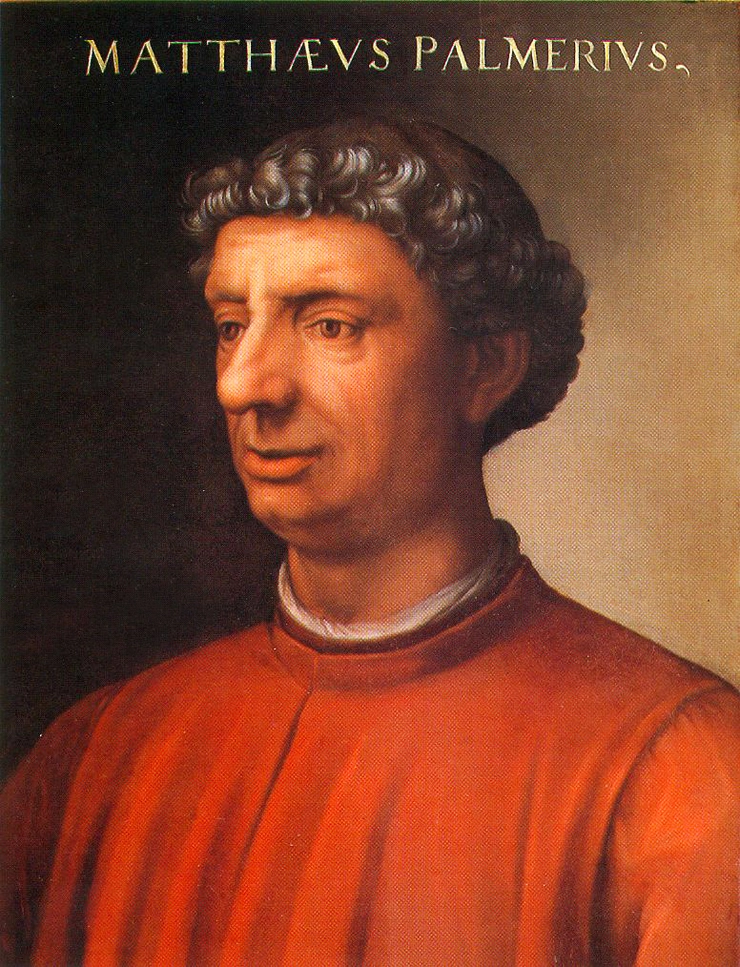
Florence - due to the newly emerged wool industry, which could no longer be limited to local markets, but required long-distance trade, and due to the early capitalist banking system, which was necessary for this long-distance trade - had already placed itself at the forefront of the economic and cultural development of Europe from the 14th century onwards, and in the 15th century brought it to a flowering that can still be considered the greatest of this city.
Not only the names of the Medici are associated with this rise, but also those of countless artists who still enjoy world renown today. The great educational movement of humanism was also able to prosper in Florence in a special way: Here, more than anywhere else, it was actively brought to the citizens from closed circles of scholars. Since Hans Baron's epochal work The Crisis of the Early Italian Renaissance (1955), one has therefore spoken of civic humanism .
Matteo Palmieri (1406-1475), born the son and heir of an apothecary, held more than fifty public offices in the course of his life, and authored eight works :
Written in Italian so that everyone could understand it, it realizes one of the basic concerns of humanism - namely, to rediscover and revive the texts and culture of antiquity - in an astounding way. By intelligently, sensitively, and even mindlessly picking out pertinent passages, especially from Cicero's De officiis and Aristotle's Nicomachean Ethics, she manages to transport them across a thousand and five hundred years into a text that seeks to guide the citizen of its time to the right course of action. This guide then soon began to circulate among Palmieri's fellow citizens and has no equal in this era.
In four books, Palmieri looks at birth, childhood, education, youth, life and old age, weaves in the classic cardinal virtues of prudence, temperance, bravery and especially justice, deals with jokes at banquets as well as wedding customs and military affairs, daily wages and free labor, port facilities and the mischief of condottieri and mercenaries.
His work can be embedded in currents of thought ranging from Dante, Francesco Petrarch, Coluccio Salutati, Leonardo Bruni, through him to Baldassar Castiglione and Niccolò Machiavelli.
The subject of the project is the hitherto missing introduction, which is to comprise eighty to one hundred pages.
Contact: Peter Michael Schenkel, M.A. Funding : DFG funding Duration : November 2021 to August 2023